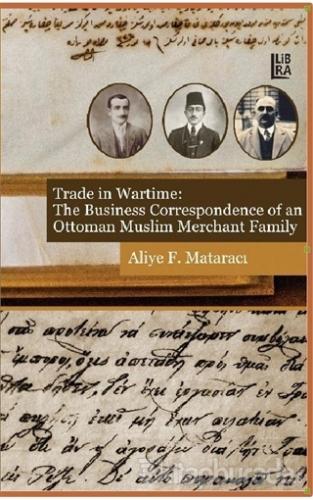Trade in Wartime: The Business Correspondence of an Ottoman Muslim Merchant FamilyThe Business Correspondence of an Ottoman Muslim Merchant Family

In spite of being buried in archives, rarely dohistorians strike gold. And I've heard from many a historian thatwhen they do, micro-analysis of the documents take center stage at the cost ofhistorical perspective. Aliye Mataracıskillfully combines both in a flowingnarrative that does justice to her sources - an exchange of letters betweena heretofore unrecognized yetlong standingMuslim Ottoman merchant family. In similar vein to Soviet historians dismissingthe modernization of Russia under the Czars, the same fate befell the Ottoman empire. The two words, modernization and empire, were the twain that never would meet. It waswith my generation of Turkishhistorians born after World War II that Ottoman studies forthe countrybecame a respectable subject in both academia and the public realm.It was also through their voices that, half a century after its founding, a critical distance could be taken to the Republic.Yet this same generation was still under the hold of the founding father'sideology thatthe Republic was a fresh and progressivestart in all aspects of life. Aliye Mataracı and a new generation of young Ottoman historiansemphasizing the universal over the particular, are at the forefrontof opening a new windowto the Ottoman past where process and continuitytake precedence over historical rupture.
Gündüz Vassaf
- Açıklama
In spite of being buried in archives, rarely dohistorians strike gold. And I've heard from many a historian thatwhen they do, micro-analysis of the documents take center stage at the cost ofhistorical perspective. Aliye Mataracıskillfully combines both in a flowingnarrative that does justice to her sources - an exchange of letters betweena heretofore unrecognized yetlong standingMuslim Ottoman merchant family. In similar vein to Soviet historians dismissingthe modernization of Russia under the Czars, the same fate befell the Ottoman empire. The two words, modernization and empire, were the twain that never would meet. It waswith my generation of Turkishhistorians born after World War II that Ottoman studies forthe countrybecame a respectable subject in both academia and the public realm.It was also through their voices that, half a century after its founding, a critical distance could be taken to the Republic.Yet this same generation was still under the hold of the founding father'sideology thatthe Republic was a fresh and progressivestart in all aspects of life. Aliye Mataracı and a new generation of young Ottoman historiansemphasizing the universal over the particular, are at the forefrontof opening a new windowto the Ottoman past where process and continuitytake precedence over historical rupture.
Gündüz Vassaf
- Yorumlar
- Yorum yazBu kitaba henüz kimse yorum yapmamıştır.
